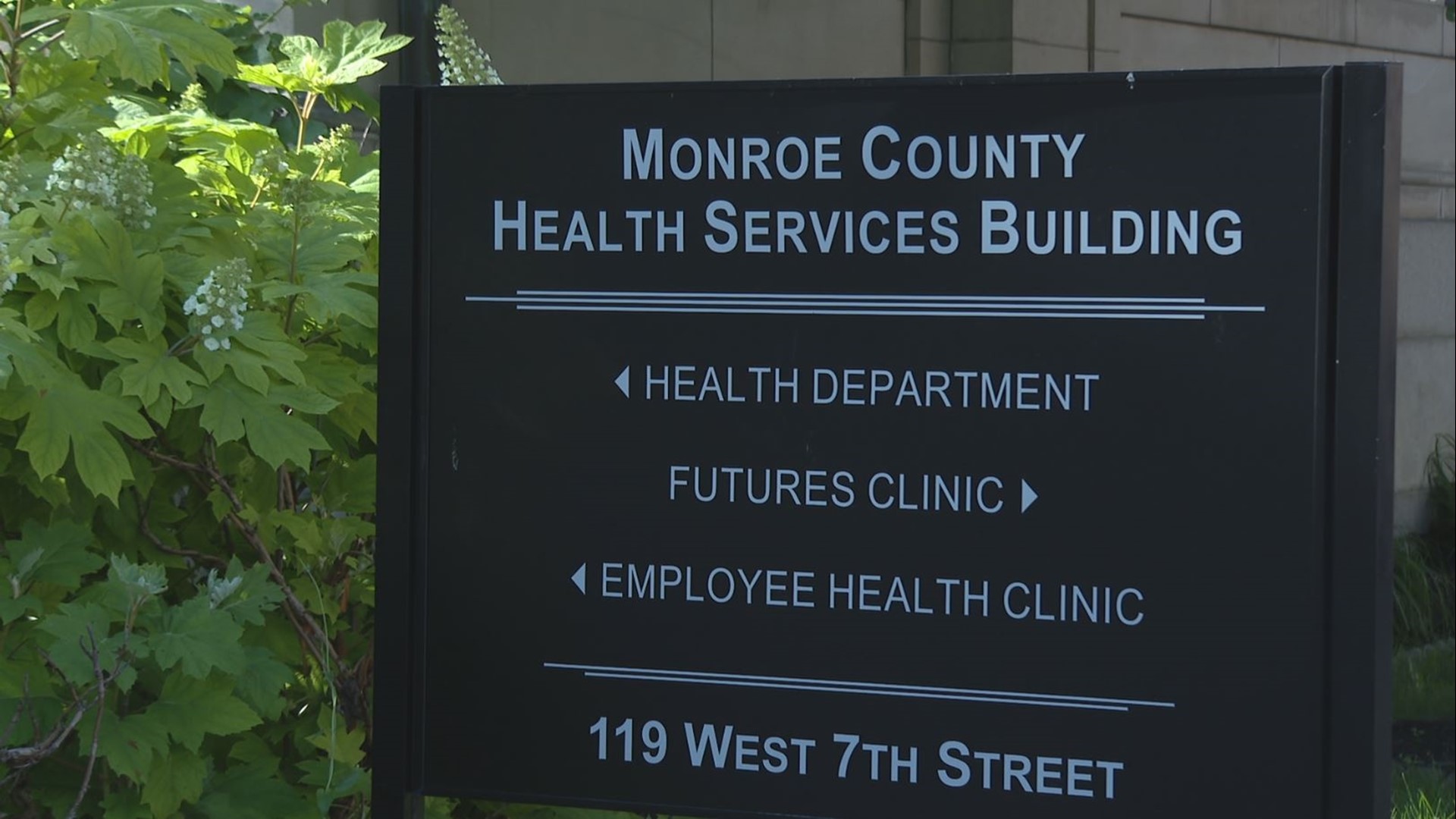BLOOMINGTON, Ind. — More than two years into the coronavirus pandemic, Monroe County is still seeing high transmission of COVID-19.
That's according to health department administrator Penny Caudill.
"The takeaway is that there is still virus circulating in the community at a high level," said Caudill, "and people should be aware of that."
Even though transmission is high, Caudill said the "community level" is still low, according to the CDC.
"It is looking at either you have over 200 cases per 100,000 or you are under that," said Caudill. "You can be under that and still have a high level of transmission."
Caudill said the "community level" is also based on hospitalization rates and severe disease, which she says are both low in Monroe County.
As of Thursday, Monroe County has one of the highest rates in the state of new daily cases per 10,000 people. Other central Indiana counties with elevated community levels measured on Thursday include Bartholomew, Decatur, Hamilton, Jackson, Lawrence and Owen.
Caudill said Indiana University has been a major resource for Monroe County when it comes to testing for COVID-19.
She said the more people a community is able to test, the more positive cases it will report. Therefore, Monroe County has a higher positivity rate.
With school out for the summer, however, Caudill expects case numbers and testing to drop.
"This summer, there will be less of that occurring," said Caudill, "because IU won't be doing the testing they've been doing. More students are gone, and so we always see some change over the summer with various things like that."
Caudill said regardless of case numbers or transmission levels, there are two steps you can take right now to slow the spread of the coronavirus at this point in the pandemic.
The first is to get vaccinated against COVID-19.
"The more people who are vaccinated," said Caudill, "the lower the risk of getting new strains of the virus."
The second reminder is to get tested, if need be.
"Test if you need to," said Caudill, "so if you have any symptoms, regardless of how mild they might be, because we are seeing a lot of mild symptoms, and if you've been exposed, wait five days if you have no symptoms - wait five days and get tested."
Caudill said Monroe County still has plenty of resources when it comes to both tests and vaccines.
She said residents can reach out to the Monroe County Health Department with any questions.
"COVID-19 isn't going to go away," said Caudill. "We have to figure out what that looks like going forward. So my hope is we will come together and figure out how we move forward and work together to keep transmissions low."

